TextLineBounds Enum
Definition
Important
Some information relates to prerelease product that may be substantially modified before it’s released. Microsoft makes no warranties, express or implied, with respect to the information provided here.
Influences how a line box height is calculated
public enum class TextLineBounds/// [Windows.Foundation.Metadata.ContractVersion(Microsoft.UI.Xaml.WinUIContract, 65536)]
enum class TextLineBounds[Windows.Foundation.Metadata.ContractVersion(typeof(Microsoft.UI.Xaml.WinUIContract), 65536)]
public enum TextLineBoundsPublic Enum TextLineBounds- Inheritance
-
TextLineBounds
- Attributes
Fields
| Name | Value | Description |
|---|---|---|
| Full | 0 | Uses normal line box height calculation, this is the default. |
| TrimToCapHeight | 1 | Top of line box height is the cap height from the font. |
| TrimToBaseline | 2 | Bottom of line box height is the text baseline. |
| Tight | 3 | Top of line box height is the cap height from the font, bottom of line box height is the text baseline. |
Remarks
How the TextLineBounds values influence line height calculations for adjacent lines is best shown through illustrations. The first illustration for each value shows a single line and the second shows two adjacent lines and their bounds.
- Yellow areas represent the areas that are outside of a TextBlock outer boundary, and would thus be masked if there was adjacent content (text or otherwise).
- The red line is the text cap height, which text ascenders might go above. The upper-case "Â" character in the illustrations has an ascender.
- The green line is the text baseline, which text descenders might go below. The lower-case "j" character in the illustrations has a descender.
Full
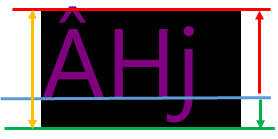 | 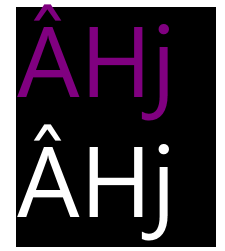 |
TrimToCapHeight
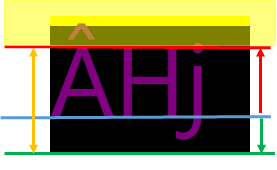 | 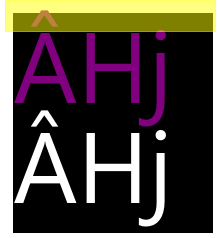 |
TrimToBaseline
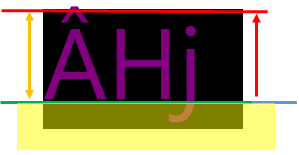 | 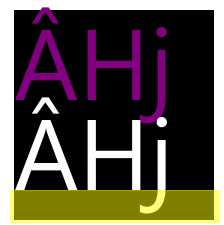 |
Tight
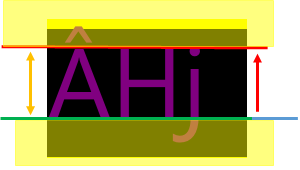 | 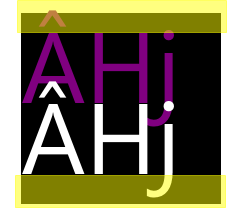 |
Note that for the Tight alignment there is a strong possibility that characters are overlapped if there are any ascenders or descenders. Especially if the different lines of characters use the same Foreground value, the overlap can negatively impact readability.